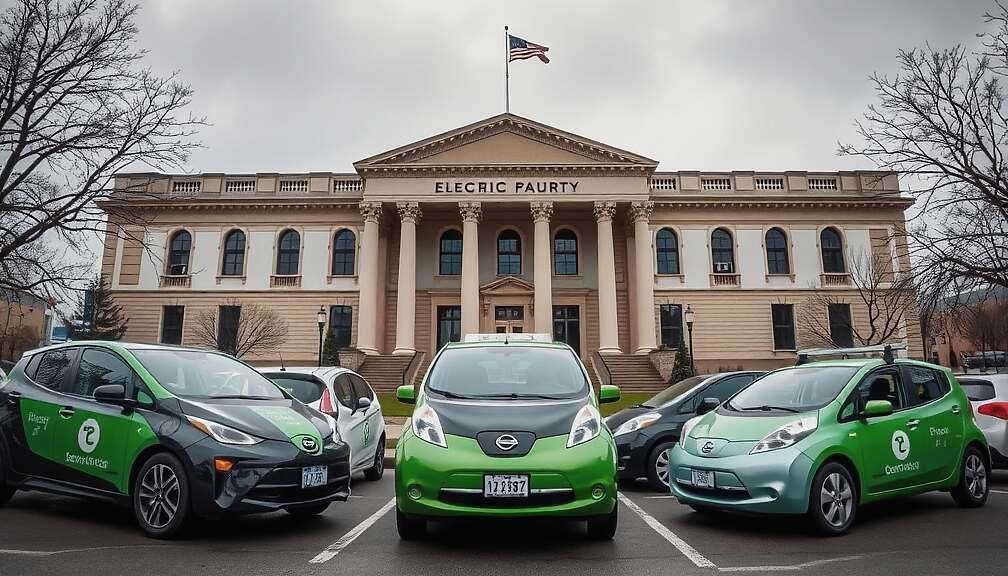The German government’s “Automotive Summit” was met with a disruptive demonstration Thursday as Greenpeace activists deployed ten electric vehicles outside the Chancellery, escalating the pressure for a swift transition away from combustion engine vehicles. Marion Tiemann, Greenpeace’s transportation expert, sharply criticized the current ambiguity, stating that delaying a decisive shift to electric mobility would be “fatal” and cautioned against clinging to a failing strategy.
Tiemann underscored that EU regulations offer a pathway to making electric vehicles accessible while simultaneously upholding climate targets and maintaining the competitiveness of the German automotive industry on the global stage. She accused the government of capitulating to pressure from industry lobbyists and argued that a reliable framework is essential to provide planning certainty – a feature notably absent due to the current erratic policy landscape.
Greenpeace’s projections estimate that electric vehicle adoption will prevent over 5 million tonnes of CO2 emissions this year alone. A broader outlook suggests potential savings of nearly 100 million tonnes of CO2 between 2016 and 2030, based on government projections anticipating around 8.7 million electric vehicles on German roads by 2030. The organization highlighted the dual benefits: a strengthened German climate record and a reduced reliance on oil imports.
Responding to counterarguments from industry representatives expressing concerns about the perceived haste of phasing out combustion engines, Tiemann insisted that “ten years are more than enough time” for the German automotive sector to adapt if it wishes to remain competitive in the international marketplace. She welcomed government proposals to incentivize electric vehicle purchases for lower-income households but stressed the need to couple these incentives with disincentives for new combustion engine vehicle purchases through taxation, a move she believes is crucial to accelerate the transition. The demonstration underscores a growing political tension surrounding the pace and nature of Germany’s electric vehicle transition, questioning whether the government is balancing industry concerns with the urgency of climate action.












